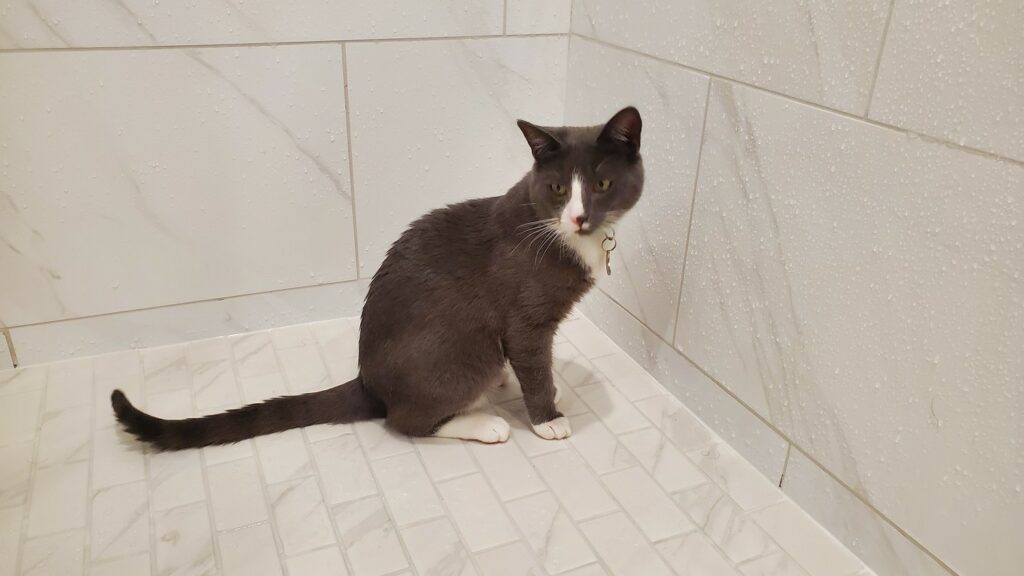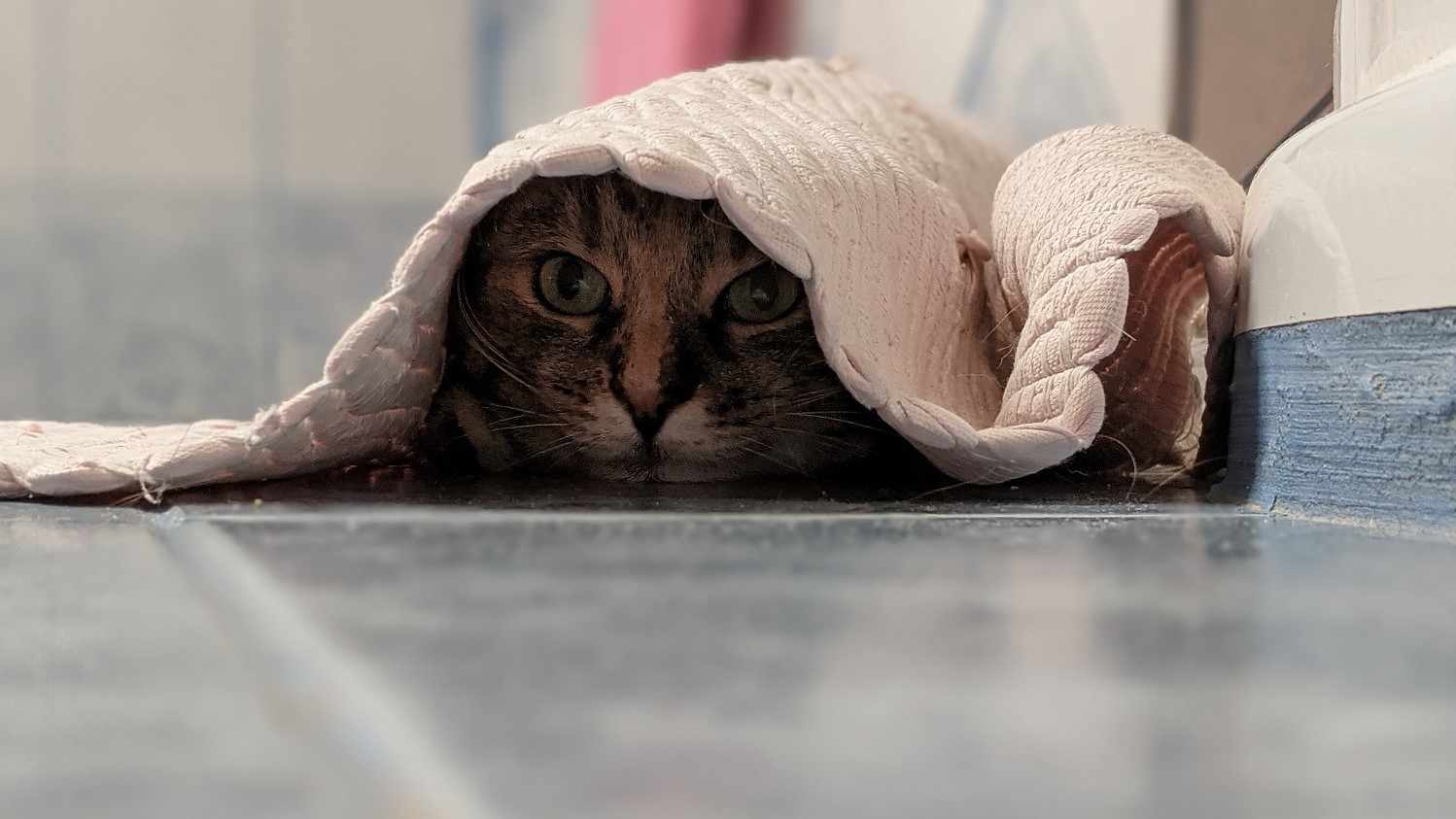Bringing home a new kitten is equal parts exciting and exhausting. At some point, usually around bedtime, a very real question hits: Where is this little chaos goblin going to sleep?
If you’ve ever considered closing your kitten in the bathroom overnight, whether for safety, training, or your own sanity, you’re not alone. The short answer is yes, you can leave a kitten in the bathroom overnight, but only if you set things up properly.
Here’s everything you need to know to make sure your kitten is safe, comfortable, and well cared for while you both get some much-needed sleep.
Why the Bathroom?
A small, enclosed space like a bathroom can actually be a good overnight spot for a kitten, especially in the early days. It’s easier to supervise, kitten-proof, and control than an entire house or even a bedroom.
Benefits of using a bathroom include:
- Fewer places to hide
- Fewer hazards to explore
- Easier to clean up accidents
- A quiet, calm place to rest
That said, not every bathroom is kitten-ready right out of the gate.
When It’s Okay to Leave a Kitten in the Bathroom Overnight
It’s perfectly fine to leave your kitten in the bathroom overnight if you’ve checked all the safety boxes. This setup works best for:
- Kittens under 12 weeks old
- New kittens still adjusting to your home
- Kittens who aren’t litter trained yet
- Times when unsupervised roaming isn’t safe
Many shelters and foster homes use a similar method for early socialization and litter box training. It helps kittens learn boundaries and routines in a space that’s easier to manage.
How to Make the Bathroom Safe and Comfortable
Before you close the door for the night, make sure your bathroom is kitten-friendly. Here’s what to include and what to remove.
What to Include:
Related read: How to Handle Nighttime with a Young Kitten.
- Litter box: Use a low-sided box that’s easy for your kitten to access.
- Food and water: Leave fresh water and a small portion of food for the night.
- A cozy bed or blanket: Something soft and washable for them to curl up on.
- Toys: Add a few soft toys or a ball to keep them entertained if they wake up.
- Scratching post or mat: Helps prevent them from clawing at cabinets or rugs.

I’m really not sure about why my humans put me in the small white room sometimes. Don’t get me wrong, I like licking the water off the floor of the wet part. And if I get bored with that and don’t feel like sleeping, I can always go practice my ninja skills on that roll thing next to the funny white chair. Humans are just weird. #NinjaSkills #SillyHumans
Winston
What to Remove:
- Cleaning supplies: Lock up anything toxic, like bleach or toilet bowl cleaner.
- Small objects: Hair ties, dental floss, or anything they could swallow.
- Shower curtain cords or dangling items: Prevent accidental entanglement.
- Toilet lid up: Close it to avoid any tumbles or unexpected splashes.
If possible, check the temperature too. Bathrooms can get chilly at night, so a warm blanket or heated pad (on a low, pet-safe setting) can make a big difference.
Crying and Meowing
Your kitten might cry the first few nights. Especially if they’re used to being with their littermates. This is completely normal.
Tips to ease the transition:
- Place a ticking clock or white noise machine nearby to mimic comforting sounds
- Leave a nightlight on so they can see their surroundings
- Spend time with them in the bathroom before bed, so they associate it with calm and comfort
Avoid opening the door every time they meow. That teaches them that crying = attention. Instead, give them time to adjust and stick to a consistent routine.
When the Bathroom Is NOT the Best Option
While the bathroom can be a safe sleep space, it’s not ideal in every situation. Avoid using it overnight if:
- Your bathroom is too cold or damp
- There are plumbing hazards you can’t remove
- The kitten is recovering from illness or surgery and needs closer monitoring
- Your kitten has shown anxiety or fear in that space
Always prioritize your kitten’s emotional well-being along with physical safety.
Alternatives to the Bathroom
If the bathroom doesn’t work for your setup, you can also use:
- A small bedroom that’s been fully kitten-proofed
- A large crate or playpen designed for overnight use
- A walk-in closet (with good airflow and lighting)
The goal is the same: a small, safe space that encourages restful sleep and minimizes trouble.
Final Thoughts: It’s All About Preparation
Leaving your kitten in the bathroom overnight isn’t cruel. In fact, it can be a great way to keep them safe and help them settle into a routine. The key is making sure the space is clean, cozy, and completely hazard-free.
With the right setup, your kitten will have a calm, restful place to sleep. And you’ll be one step closer to a peaceful, accident-free night.
Sources:
– Kitten-Proofing Your Home https://www.humanesociety.org/resources/kitten-proofing-your-home
– Overnight Care for New Kittens https://vcahospitals.com/know-your-pet/caring-for-your-kitten
– Litter Box Training Tips https://www.petmd.com/cat/behavior/how-litter-train-kitten
– Creating a Safe Space for Kittens https://www.aspca.org/pet-care/cat-care/general-cat-care
– Kitten Sleep Habits and Routines https://icatcare.org/advice/preparing-your-kitten-for-life/
Recent Posts
Explore why cats sleep so much, including the evolutionary reasons and the health benefits they derive from their extensive sleep patterns.
Explore the causes of cat dandruff, its implications, and effective ways to deal with it so your feline friend remains happy and healthy.


